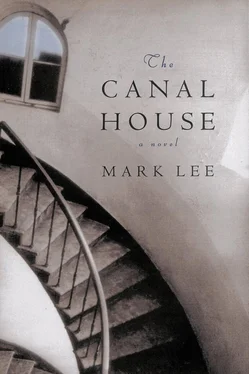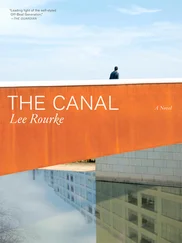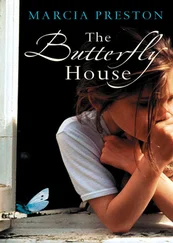“What are you talking about, Nicky? You saw the explosion yourself.”
“You probably came up with the idea when you were negotiating with Vanderhouten. You paid him off and Pak threw a gasoline bomb.”
Richard stood up and looked down at me. “You think you understand the world because you’ve photographed a few starving babies and bribed your way around some roadblocks, but you’re an innocent, Nicky. You don’t know anything.”
“I know that you killed Daniel. That’s enough.”
“You can’t prove that. I don’t care what that old man told you. It’s not true and no one’s going to believe him.”
“That doesn’t make a damn bit of difference to me. All I have to do is spend some time here in London, buying drinks for journalists, and telling them what happened. Then I’ll fly over to New York and do the same thing. The story would leak out. It always does, these days.”
Billy stepped forward and jabbed his finger in my direction. “Doing something like that would cause some very negative consequences.”
“Tell Billy to shut up. I didn’t come here to talk to another murderer.”
“Watch your mouth!” Billy shouted.
“I want him to be quiet because I’m about to explain the only way you can get out of this.”
Everything changed the instant I said that. Billy glanced at Richard. His fists became hands again and he returned to the door. Richard smiled slightly, then decided that it didn’t look dignified. He went over to the concrete desk, sat down, and flipped open a thin leather binder that contained rows of blank checks. “I’ll pay you one hundred thousand pounds, Nicky. Take it or leave it. I won’t negotiate.”
“I don’t want your money.”
He looked startled. Over at the door, Billy shifted his weight around like a boxer getting ready to attack.
“What I’m telling you is this—you will never see Julia again. You will never talk to her. You will never inquire about her. You will stay out of her life forever.”
Richard stopped writing the check and sat there with a pen in his hand. “You can’t order me around.”
“You’re wrong about that. That’s exactly what I’m doing.” I stood up and headed for the door. “You’re not going to talk to Julia and you’re not going to talk to me. I’ve already written out a statement and left it in a safe place. Keep away from me or the world is going to learn that you killed Daniel.”
“Stay here,” Richard said. “We’re not finished with this conversation.”
“Everything you say about me is true. I’m not rich or successful, I don’t have a home or a family, and now I’ve lost my best friend. But that’s an advantage in this situation. I’m like one of those suicide bombers with nothing to lose.”
Feeling tense and sweaty, I passed through the outer office and stood in front of the elevators. I expected the phone to ring downstairs in the lobby and waited for the security guard in the blazer to give me that “Step this way, sir” routine. When I made it out to the sidewalk, I started breathing again.
I bought a pad of paper and a manila envelope at a stationery store and sat in a pub. I wrote down exactly what had happened on the Seria and described the confrontation with Richard. When that was done, I signed the statement and placed it in the envelope with a roll of film that included Pak’s photograph.
It had rained that morning, but patches of sky were starting to appear when I took a cab over to the Newsweek offices. Ann and Carter were checking the color levels of some photographs on a computer when I walked in. They both looked surprised to see me.
“Nicky! When did you get back?” Carter said.
“Yesterday.”
“It was just terrible what happened to Daniel McFarland,” Ann said. “It’s been in all the papers. The magazine ran a half-page, boxed, with his picture.”
“I haven’t read any of it.”
“Have you seen this?” She handed me a copy of Newsweek from a few weeks ago while I was in Dili. My shot of the mother with her dying child was on the cover. Inside were four pages of my photographs with the headline AGONY IN EAST TIMOR. I had even gotten a reporter’s byline for what I explained over the phone.
“New York loves you,” Carter said. “They’re going to nominate you for the Pulitzer Prize.”
A few months ago I would have dragged them down to a pub and bought drinks for everyone. Now I didn’t care. “It’s stuffy in this office,” I told Carter. “Let’s get out of here and take a walk.”
We used the pedestrian passageway to Hyde Park. The statue of the falling lovers was still there, but the cherubs had been wrapped in plastic sheeting. Carter and I headed down Lovers’ Walk, trying to avoid the patches of mud. A cold wind tugged at the flap of his trench coat.
I handed him the sealed envelope. “Take this and keep it in a safe place. If I get killed in some idiotic accident, it’s probably not an accident. Open it and show the statement to everyone you know.”
“Okay.” Carter stared at me. “You all right, Nicky? How you feeling?”
“Tired.”
“Listen, I could authorize payment for fifteen sessions with a psychologist here in London. Sometimes people need to talk to a therapist after they’ve been through a difficult experience.”
“That’s not what I want to do right now.”
Carter stopped walking and we stood between two beech trees. A few dead leaves still clung to the branches. “If you want another assignment, that’s easy enough. New York just called me about your availability.”
“Where do they want to send me?”
“Three blind people, including the son of Senator Bob Rawlings, will attempt to climb Mount Everest this January. You wouldn’t have to go all the way to the summit, just to one of the base camps.”
“The whole thing sounds completely pointless.”
“Of course it’s pointless, but you could get some good photographs.”
“Who knows? I might get lucky. Someone might die.”
Carter’s voice was calm and sympathetic. “You really should go see that therapist, Nicky. I’ve used her myself to deal with a few issues.”
“I need to take some time off.”
“Of course. No problem. You’ve earned it.”
We stood there for a few minutes with our hands in our pockets. A gust of wind made the dead leaves shiver.
“I guess Daniel was your friend,” Carter said.
“Does that surprise you?”
“People work together for years, but you never really know what their relationship is until …” Carter looked embarrassed. “Until something happens.”
• • •
I FELT AS EMPTY and fragile as a paper cup, too tired to sleep or eat or do anything but wander around London. If I had been left on my own, I probably would have returned to the Elgin Marbles at the British Museum. Sitting on one of the benches, I could have spent the rest of my life watching thousands of strangers stroll in and view the sculptures, make the circuit around the room, stop and examine the angry centaurs, then walk out the doorway.
But I couldn’t stay in London. I had to see Julia. A plane flight seemed too immediate so I took a train to Paris, then booked a ticket on the express going down to Rome. I sat alone in a first-class compartment with a fold-down bed, table, and a little steel sink. Everything was clean and in the right place. The young porter smiled and told me that the dining car was open for supper. Chrysanthemums trembled in a fluted vase as we rolled past cornfields and clattered over bridges. Later that night we stopped at a train station near the Italian border. I lay in the lower bunk and peered through the half-opened curtain. Fluorescent light. An empty train platform. And it seemed so lonely, like a way station to a shadowy, awful place. Wheels squeaked, the train shuddered as another car was added, and then we were moving forward.
Читать дальше












